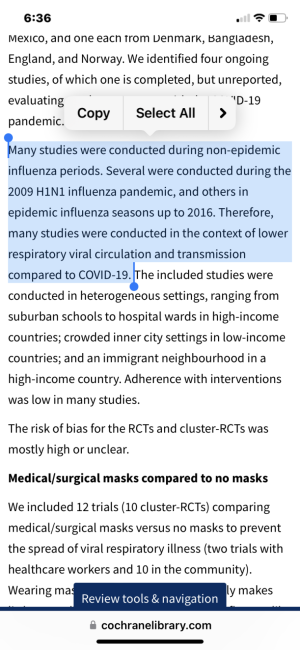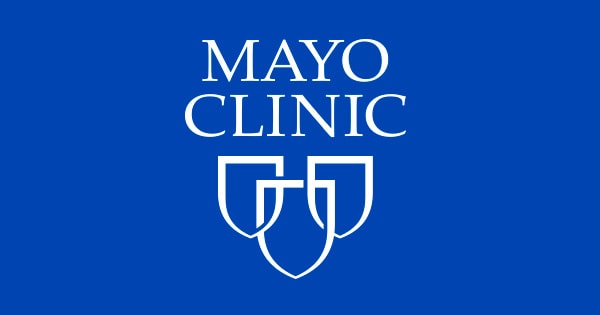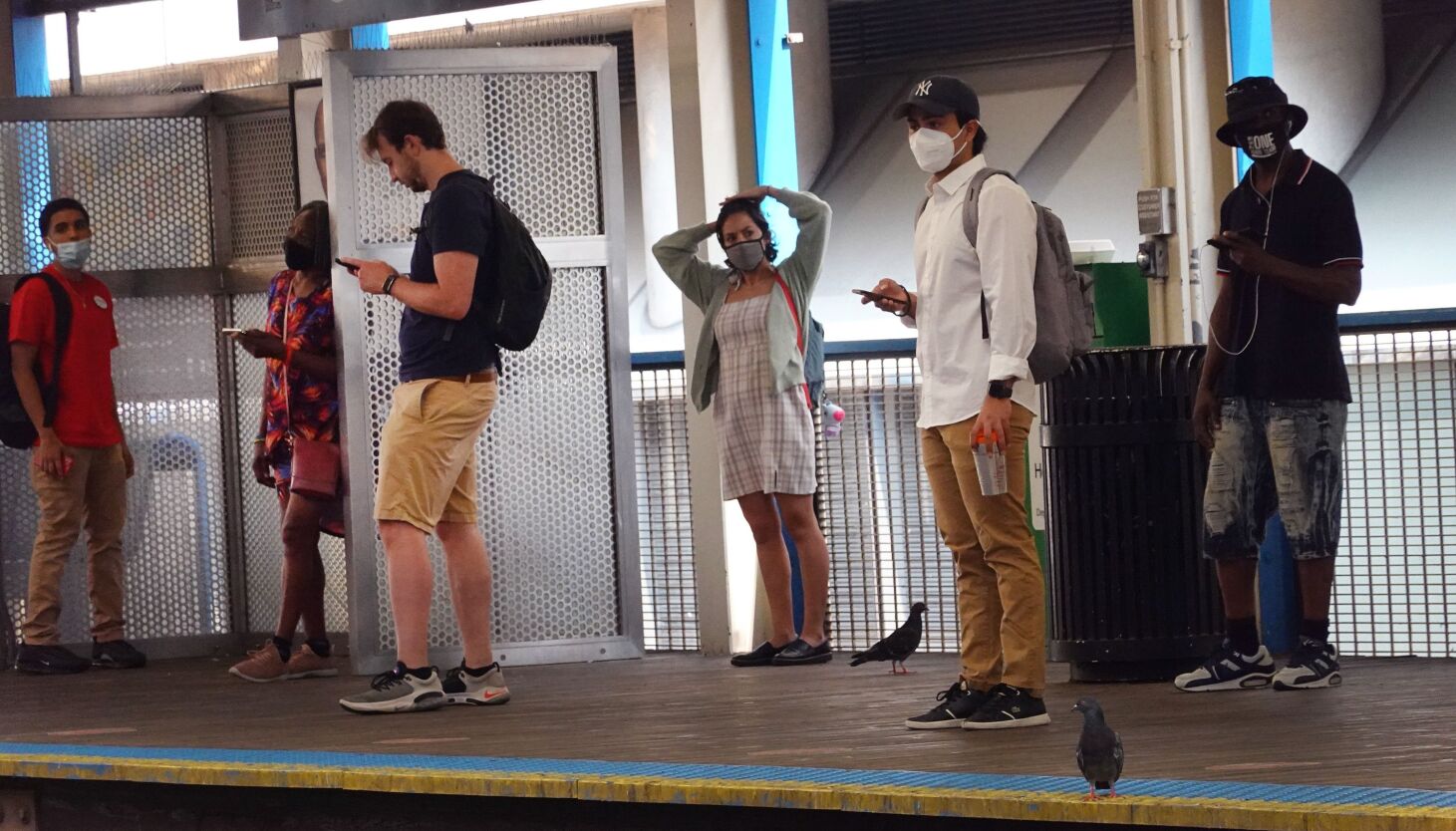Before I move on regarding this thread, I'll explain why I made two prior posts and why I'll close out my involvement with one additional contribution. As someone else said, my beliefs are irrelevant to the discussion; I know what works for me ... and God forbid you follow me ... don't want that responsibility regarding health care. Regardless of the subject (e.g., growing trees) I try to point folks toward the best (yes, I know it's my opinion) information available and maybe point out what might be relevant parts of that information (including source credibility).
The Cochrane Database piece has been noted by 3 posters; TT initially presented it - I believe in good faith - as information relevant to the efficacy of masks. My red flag with his post was the n95 section on the right side of the page - especially the absence of the word Covid and the bias factor inherent in many RCT studies.
Assuming folks are really interested in the efficacy of masks, I share info for your bedtime reading and enjoyment.
1st .. a piece by an world respected organization ... PNAS ... The Proceedings of the National Academy of Sciences (PNAS), a peer reviewed journal of the National Academy of Sciences (NAS), is an
authoritative source of high-impact, original research that broadly spans the biological, physical, and social sciences. The journal is global in scope and submission is open to all researchers worldwide.
https://www.pnas.org/doi/10.1073/pnas.2014564118 ...
2nd .. from The National Library of Medicine -
Randomized controlled trials in patients with COVID-19: a systematic review and critical appraisal
"Of the 40 included trials, 19 (47%) were at high risk of bias, and this was particularly frequent in trials from low-middle income countries (11/14, 79%). Potential deviations to intended interventions (i.e., control participants accessing experimental treatments) were considered a potential source of bias in some studies (14, 35%), as was the risk due to selective reporting of results (6, 15%). The randomization process was considered at low risk of bias in most studies (34, 95%), as were missing data (36, 90%) and measurement of the outcome (35, 87%).
Many randomized trials evaluating COVID-19 interventions are at risk of bias, particularly those conducted in low-middle income countries. Biases are mostly due to deviations from intended interventions and partly due to the selection of reported results. The use of placebo control and publicly available protocol can mitigate many of these risks."
3rd - material taken from the Cochrane piece (all in quotes)
"The risk of bias for the RCTs and cluster‐RCTs was mostly high or unclear.-" are they really saying ... we don't know?
"
What are the limitations of the evidence?"
"Our confidence in these results is generally low to moderate for the subjective outcomes related to respiratory illness, but moderate for the more precisely defined laboratory‐confirmed respiratory virus infection, related to masks and N95/P2 respirators. The results might change when further evidence becomes available.
Relatively low numbers of people followed the guidance about wearing masks or about hand hygiene, which may have affected the results of the studies."
" The evidence summarised in this review on the use of masks is largely based on studies conducted during
traditional peak respiratory virus infection seasons up until 2016. Two relevant randomised trials conducted during the COVID‐19 pandemic have been published, but their addition had minimal impact on the overall pooled estimate of effect
. The observed lack of effect of mask wearing in interrupting the spread of influenza‐like illness (ILI) or influenza/COVID‐19 in our review has many potential reasons, including: poor study design; insufficiently powered studies arising from low viral circulation in some studies; lower adherence with mask wearing, especially amongst children; quality of the masks used; self‐contamination of the mask by hands; lack of protection from eye exposure from respiratory droplets (allowing a route of entry of respiratory viruses into the nose via the lacrimal duct); saturation of masks with saliva from extended use (promoting virus survival in proteinaceous material); and possible risk compensation behaviour leading to an exaggerated sense of security (
Ammann 2022;
Brosseau 2020;
Byambasuren 2021;
Canini 2010;
Cassell 2006;
Coroiu 2021
4th JAMA ... Journal of American Medical association
https://jamanetwork.com › journals › jama › fullarticle
Effectiveness of Mask Wearing to Control Community Spread
5th A couple of highly regarded medical organizations
https://www.mayoclinic.org › in-depth › art-20485449 How well do face masks protect against COVID-19?
https://www.hopkinsmedicine.org › health › coronavirus Coronavirus Face Masks FAQs - Johns Hopkins Medicine
Sorry for the long post ... Adios, my friend!



